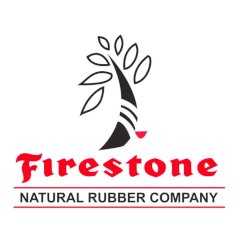Firestone Liberia Refutes Accusations of Exporting Unprocessed Rubber, Emphasizing Local Value Addition and Support for Smallholder Farmers
Harbel, Margibi County, Liberia – Firestone Liberia has issued a strong rebuttal to accusations made by Mr. Dominic Nimely, Chairman of the Patriotic Entrepreneurs of Liberia (PATEL), who alleged that the company exports unprocessed natural rubber to other African countries, thereby hindering job creation and economic growth in Liberia. Mr. Nimely’s statements were made during a press conference on August 4, 2025, where he commended President Joseph Boakai’s Executive Order # 151, which restricts the export of raw rubber. Nimely contended that Firestone Liberia’s practices contradicted the spirit of the executive order, designed to promote local processing and value addition.
Firestone Liberia categorically refuted these claims in a press statement released on August 7, 2025. The company emphasized its unwavering commitment to local value addition, stating that all its natural rubber production is processed within Liberia into Technically Specified Rubber (TSR). This process, according to Firestone, aligns perfectly with President Boakai’s Executive Order # 151, which specifically exempts the export of processed rubber products like TSR while restricting the export of unprocessed raw rubber. The company underscored its adherence to the order’s objectives, emphasizing its contribution to the growth of Liberia’s rubber processing sector.
Furthermore, Firestone Liberia highlighted its significant contributions to the broader Liberian rubber industry, particularly its support for smallholder farmers. The company revealed that between 2021 and 2024, it directly engaged with nearly 6,000 smallholder farmers, purchasing over 60 million pounds of natural rubber. These purchases injected over US$30 million into the local economy, providing vital income for farmers and fostering the growth of their businesses. Firestone emphasized this commitment as a core component of its sustainable development strategy in Liberia.
Firestone Liberia reiterated its position as Liberia’s largest private employer, with a workforce exceeding 4,000 employees. The company expressed pride in its long-standing partnership with the Liberian government and its people. It reaffirmed its dedication to the sustainable development of the natural rubber sector, highlighting both its processing operations and its support for local farmers as key elements of this commitment. The company’s statement serves as a direct response to Mr. Nimely’s accusations and seeks to clarify Firestone Liberia’s role in the Liberian rubber industry.
The dispute between Firestone Liberia and PATEL underscores the ongoing tension between promoting local value addition and the established practices of multinational corporations operating in resource-rich countries. President Boakai’s Executive Order # 151 reflects the government’s commitment to fostering local industries and maximizing the economic benefits derived from Liberia’s natural resources. The contrasting perspectives of Firestone Liberia and PATEL highlight the complexities of balancing the interests of foreign investors with the need for sustainable economic development that benefits the local population.
This incident highlights the importance of transparent and open dialogue between stakeholders in the Liberian rubber industry. Clear communication and verifiable data are crucial for building trust and ensuring that the benefits of rubber production are shared equitably. Ongoing engagement between the government, corporations like Firestone Liberia, and organizations representing local entrepreneurs like PATEL is essential for achieving sustainable and inclusive growth in the Liberian rubber sector. Further discussions and collaborative efforts are needed to address the concerns raised by PATEL and ensure that the implementation of Executive Order # 151 effectively promotes local value addition and creates sustainable employment opportunities for Liberians.


